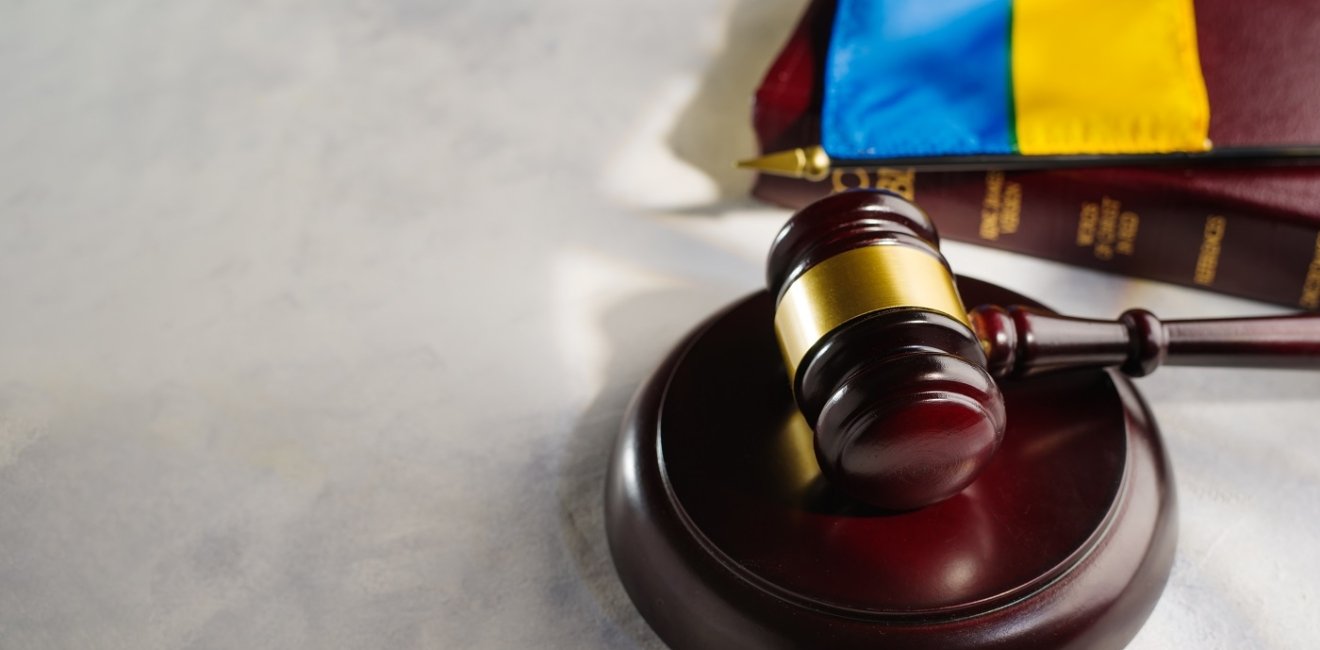
A blog of the Kennan Institute
Since the beginning of the full-scale invasion, Ukraine has launched investigations into war crimes committed by the Russian forces daily. According to Prosecutor General Andriy Kostin, Ukrainian law enforcement agencies have investigated 130 cases of war crimes. Russia has denied these accusations and instead claimed that Ukrainian authorities stage the crimes.
In March 2023, the International Criminal Court, after receiving referrals from forty-three states, opened an investigation into war crimes committed by Russians. Investigating and prosecuting war crimes can help make Russia accountable for actions undertaken by troops that violate international law. But those who design such actions are harder to prosecute.
What Constitutes a War Crime?
War crimes are considered to be grave violations of the Geneva Conventions of 1949 and other serious violations of customs or laws as stipulated in Article 8 of the Rome Statute. Accordingly, war crimes can be categorized into two types: (1) breaches of the 1949 Geneva Conventions, including torture, willful killing, the deportation of populations, and hostage taking, and (2) other severe violations of the customs and laws of war, including attacks on the critical infrastructure of, transport for, and persons providing humanitarian aid, and attacks on historical, cultural, and religious sites. The use of prohibited weapons, including weapons used in attacks on civilian targets, can also be considered a war crime.
Additionally, international legislation regulates the activities of the International Criminal Court, which is a permanent body with the authority to exercise jurisdiction over people suspected of committing atrocities that affect the global community.
How Many War Crimes Has Russia Committed against Ukraine?
Since the start of the full-scale invasion, Ukrainian law enforcement agencies have investigated 130,000 cases of war crimes, according to Prosecutor General Andriy Kostin. This number is continually increasing as the war drags on
Several different kinds of action on Russia’s part fall under the rubric of war crime.
Russian attacks on the energy system have destroyed or damaged more than 800 heat-generating facilities, including five large thermal power plants and three hydroelectric plants. At least 210,000 buildings have been destroyed since February 2022, including 106 hospitals, 109 churches, temples, mosques, and monasteries, and 708 schools. As of February 2024, at least 30,457 civilians had been killed or wounded, including 10,582 civilians killed in the conflict, among them 587 children.
Nobel Prize for Investigating War Crimes in Ukraine
The collection of evidence of and information about war crimes committed by Russian armed forces in Ukraine did not start in 2022. Ukrainian NGOs have been gathering evidence of war crimes since 2014, when Russia annexed Crimea and started its aggression in the Donbas region. The Center for Civil Liberties, the first human rights organization in the world to document war crimes in Ukraine, has documented 1,188 episodes of war crimes and submitted seventy-one cases to domestic and international tribunals.
The Center for Civil Liberties was founded in 2007 in Ukraine with the aim of pressuring the Ukrainian government to intensify its efforts to establish democracy and the rule of law. The center also worked to facilitate Ukraine's accession to the International Criminal Court in The Hague. When the Russian Federation annexed Crimea in 2014 and started its aggression in Donetsk and Luhansk regions, the center began documenting cases of the illegal imprisonment of the civilian population and other crimes against Ukrainians.
With the start of the full-scale invasion, the organization started focusing on documenting war crimes committed in the territories temporarily occupied by Russia. This work was performed in cooperation with international institutions, including the International Criminal Court. The center has also been engaged in documenting the illegal deportation of Ukrainians.
The center’s efforts were recognized by the Nobel Prize Committee, which in 2022 awarded it the Nobel Peace Prize, along with the Belarusian activist Ales Bialiatski and the Russian organization Memorial (the shared award proved controversial, as it seemingly upheld the notion of “brotherly nations”). In its statement of recognition, the committee said that the center had played a pioneering role in holding guilty parties accountable for their crimes.
How War Crimes in Ukraine Have Open Criminal Proceedings
In Ukraine, responsibility for committing war crimes is provided for in Article 438 of the Criminal Code of Ukraine, “Violation of the laws and customs of war.” Ukrainian legislation defines war crimes as the cruel treatment of prisoners of war or civilians, expulsion of the civilian population for forced labor, the plunder of national resources in occupied territory, the use of means of warfare prohibited by international law, and other violations of the laws and customs of war provided for by international treaties.
Since the start of Russian aggression in Crimea and the Donbas in 2014, Ukrainian law enforcement agencies have been engaged in collecting evidence and investigating war crimes. In 2019 the Office of the Prosecutor General of Ukraine established a specialized department to support war crimes investigations. This department closely cooperates with the security service and national police, which also have war crimes investigators. Together, they investigate various types of war crimes, including crimes against children, ecological crimes, forced deportation, the shelling of civilian infrastructure, and illegal detention.
Ukrainian war crimes prosecutors also work with mobile justice teams supported by forensic specialists and international legal experts. They conduct joint visits to deoccupied territories and collect reports about the inhumane treatment of civilians and other crimes.
The prosecutors and law enforcement agencies use various methods and tools, including facial recognition systems, social media verification, OSINT research, and the "War Crime" database, which is a repository for information on more than 500,000 pieces of evidence on war crimes committed during the full-scale invasion, and on the war criminals themselves. They also collect evidence from battlefields, including body parts and DNA samples.
Ukraine is utilizing some DNA databases and rapid DNA technologies for human remains identification and Russian war crime documentation. For instance, last year Ukraine received new mobile DNA laboratories provided by French and American partners; the labs are driven around deoccupied territories in police vans, enabling teams to process evidence in real time. This equipment significantly speeds up the identification of thousands of dead Ukrainians and the collection of evidence for hundreds of war crime cases.
Recently, Ukrainian police received from the United States sixty-six vehicles, 250 drones, nine 3D ground laser scanning systems with software, and a DNA laboratory. The rapid human DNA profile laboratories, now available in all main departments of the National Police, allow a DNA profile to be created in just over ninety minutes.
Bringing Russia to Justice
Investigating and prosecuting war crimes can play a crucial role in bringing Russia to justice for the actions Russian troops have committed against Ukrainians. However, much more investment is required to meet the needs of Ukraine in this war.
The International Criminal Court requires substantial, credible evidence to bring a charge of war crimes. Ukraine’s DNA databases will be a main pillar in this effort. But Ukraine needs additional funding to fully implement its new DNA database’s legal framework, strengthen the core and regional laboratories, and advance the collection and documentation of DNA evidence. Establishing a robust system of DNA collection takes time and requires the political will of the international community as it can facilitate fair justice.
Such thorough investigations create a comprehensive record of atrocities, ensuring that no crime goes unnoticed or unpunished. This meticulous documentation can lead to the issuance of arrest warrants and international sanctions against those found guilty.
The opinions expressed in this article are those solely of the author and do not reflect the views of the Kennan Institute.
Author


Kennan Institute
The Kennan Institute is the premier US center for advanced research on Eurasia and the oldest and largest regional program at the Woodrow Wilson International Center for Scholars. The Kennan Institute is committed to improving American understanding of Russia, Ukraine, Central Asia, the South Caucasus, and the surrounding region through research and exchange. Read more

Explore More in Focus Ukraine
Browse Focus Ukraine
Talking to the Dead to Heal the Living

Ukrainian Issue in Polish Elections


